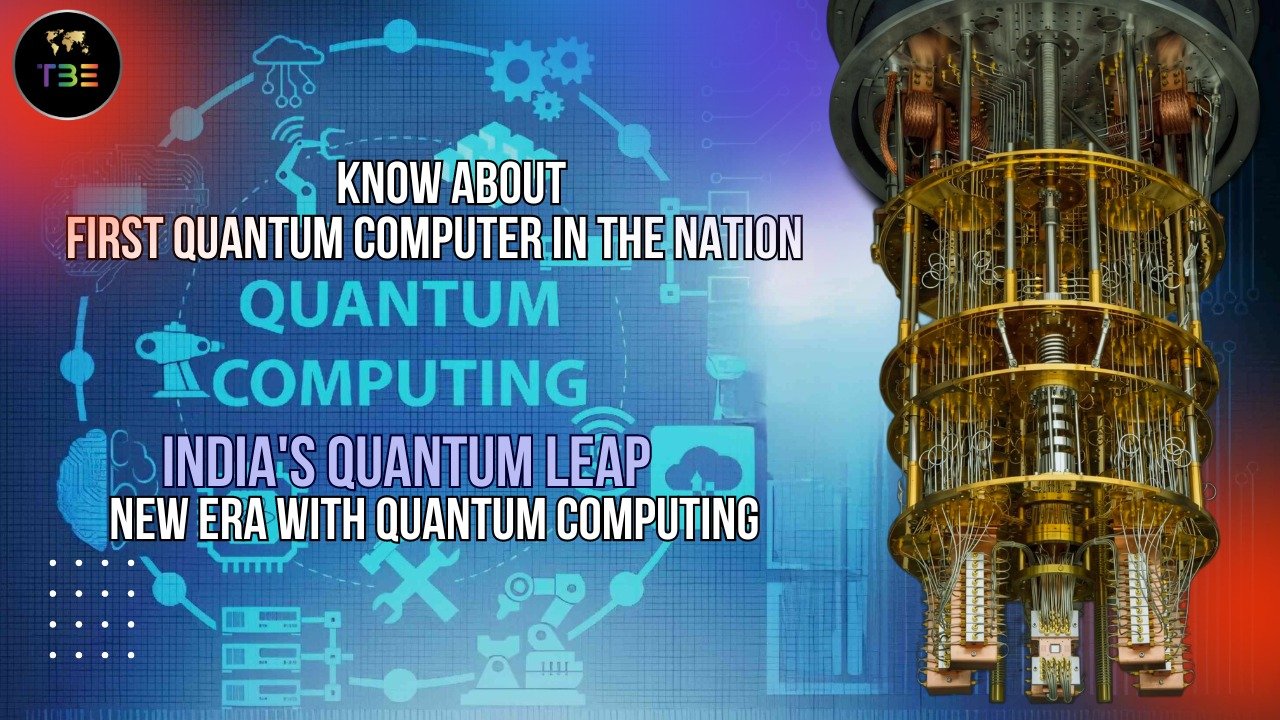India’s Future Depends on the National Quantum Mission
India’s National Quantum Mission had been suggested in 2020 with an ambitious ₹8,000 crore budget, but due to multiple hurdles, it has not progressed much. However, under the new leadership of Ajai Chowdhry, Chairman of the Mission Governing Board and co-founder of HCL, the mission is now getting ready for a successful launch. Chowdhry presents a thorough plan for making the most of the updated corpus, highlighting fresh ideas in the areas of quantum computing, communication, sensing, and measurement.
India is now prepared to make major advances in the field of quantum technology after a nearly four-year delay, owing to the National Quantum Mission (NQM), which is set to embark on many ambitious plans. With a ₹6,000 crore budget, the redesigned mission seeks to position India as a major participant in the global quantum race. This article explores the mission’s key elements, anticipated innovations, and the governing board’s strategic objectives.
The Start of a New Era with Quantum Computing
The introduction of India’s first quantum computer is one of the National Quantum Mission’s most eagerly awaited milestones. This is a major step forward, and processing with six qubits is anticipated in the upcoming months. Using the ideas of quantum physics, quantum computing is a novel way to information processing that can do intricate computations that are beyond the power of conventional supercomputers.
For the mission, Chowdhry has set high goals: building a quantum computer with 20–50 qubits in the next three years, 50–100 qubits in the next five, and 50–1000 qubits in the following ten. With existing quantum computers operating in the 20–50 qubit range, this advancement seeks to place India competitively on the world venue.
Sectoral Hubs and Smart Investments
Four Section 8 businesses, each focusing on a particular quantum technology vertical computing, communication, measurement, and sensing—will be formed to support the mission’s objectives. Leading educational establishments such as the Indian Institutes of Technology (IITs) and the Indian Institute of Science (IISc) would oversee these businesses. Chowdhry highlights that these centers would drive advancement in their respective disciplines on an independent basis under their own leadership.
The creation of these centers is a calculated decision to guarantee that different facets of quantum technology receive concentrated resources and attention. It is expected that this strategy would spark important breakthroughs and improvements in every area.
Secured Communication in the Quantum Era
The mission additionally highlights quantum communication in addition to quantum computing. For applications related to defense and national security, this industry is especially important. The concepts of quantum entanglement and superposition allow for unparalleled security characteristics in quantum communication, which involves the transfer of information utilizing quantum states.
The NQM aims to take use of the current network of Indian startups that focus on quantum communication. According to Chowdhry, these startups are already selling commercial goods to the military and other industries. The mission is to provide significant funds, ranging from ₹10-25 crore, to promote the advancement of state-of-the-art quantum communication technology in order to support this industry.
The Grant Program: Promoting Creativity
Supporting private sector initiatives and start-ups through an extensive grant program is a key component of the goal. In contrast to the ₹10–50 lakh range of regular government grants, the NQM will meet the significant capital requirements of deep tech start-ups with awards of ₹10–25 crore. The goal of this project is to promote creativity and hasten the commercialization of quantum technology.
Taking Security and Global Competitiveness into Account
Beyond scientific progress, quantum technologies are strategically significant. In order to protect national security, Chowdhry highlights how important it is for India to have its own quantum computing capabilities. Given that nations such as China are making significant investments in quantum technology, India must be able to defend vital infrastructure against any possible attacks. In principle, quantum computing might be used to take advantage of weaknesses in current security systems, which is why India has to develop its own defenses.
The Path Ahead: The National Quantum Mission, whose goals are being driven by large investments and strategic efforts, is set to revolutionize India’s technology environment. The mission will focus on obtaining concrete outcomes in quantum computing, communication, measurement, and sensing as it prepares for the opening of the four theme centers and begin funding allocation.
The leadership of Ajai Chowdhry and the increased commitment to the cause herald a new phase in India’s quantum journey. India is poised to have a significant impact in the global quantum arena with well-defined goals, significant financing, and a well-thought-out strategy. These developments might lead to achievements that fundamentally change the course of technology.
Stakeholders and observers will be closely tracking the mission’s developments for updates and innovations that will demonstrate India’s increasing strength in the field of quantum technology. The National Quantum Mission is evidence of India’s commitment to advancing science and securing its place in the world’s technological landscape.
















Leave a Reply